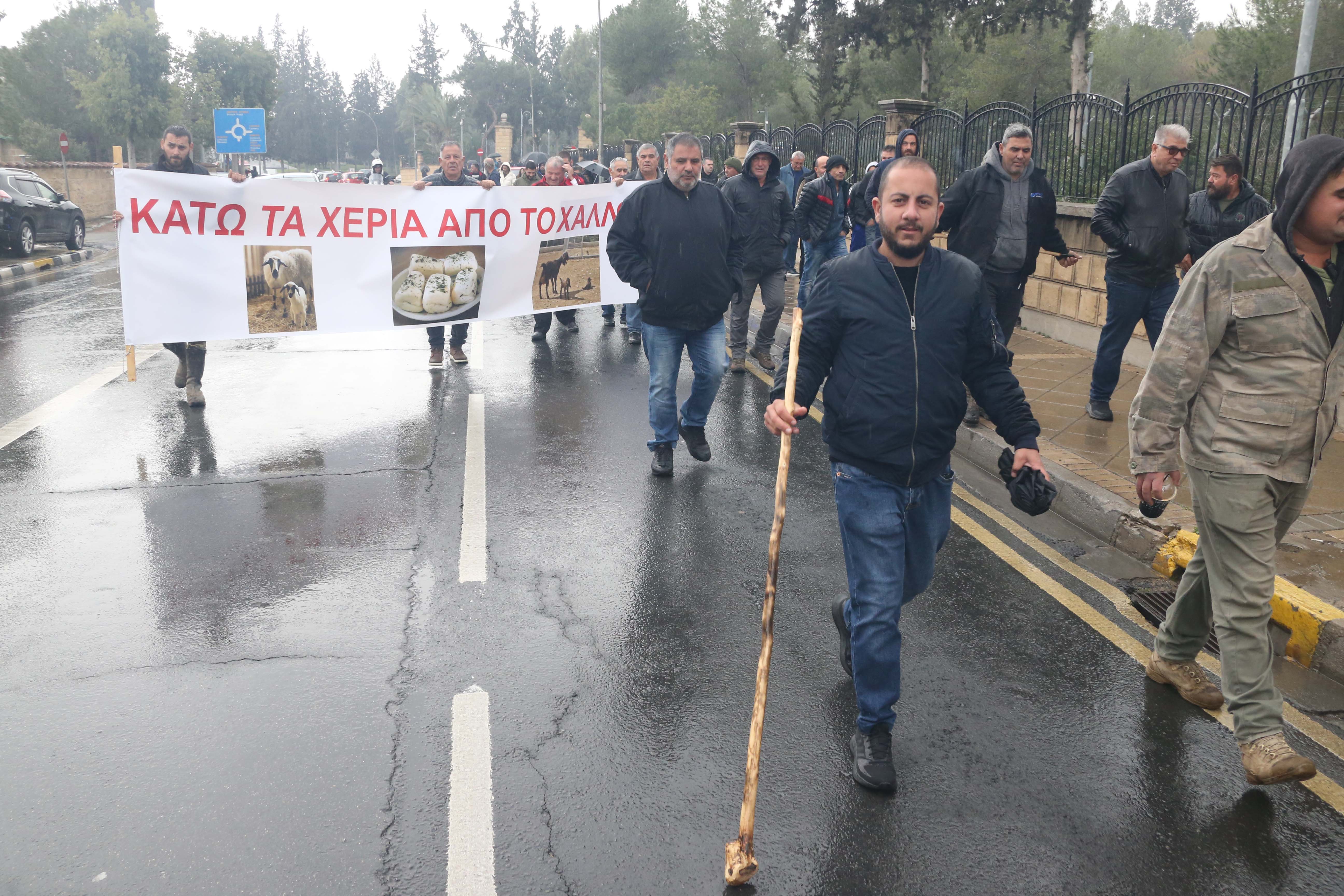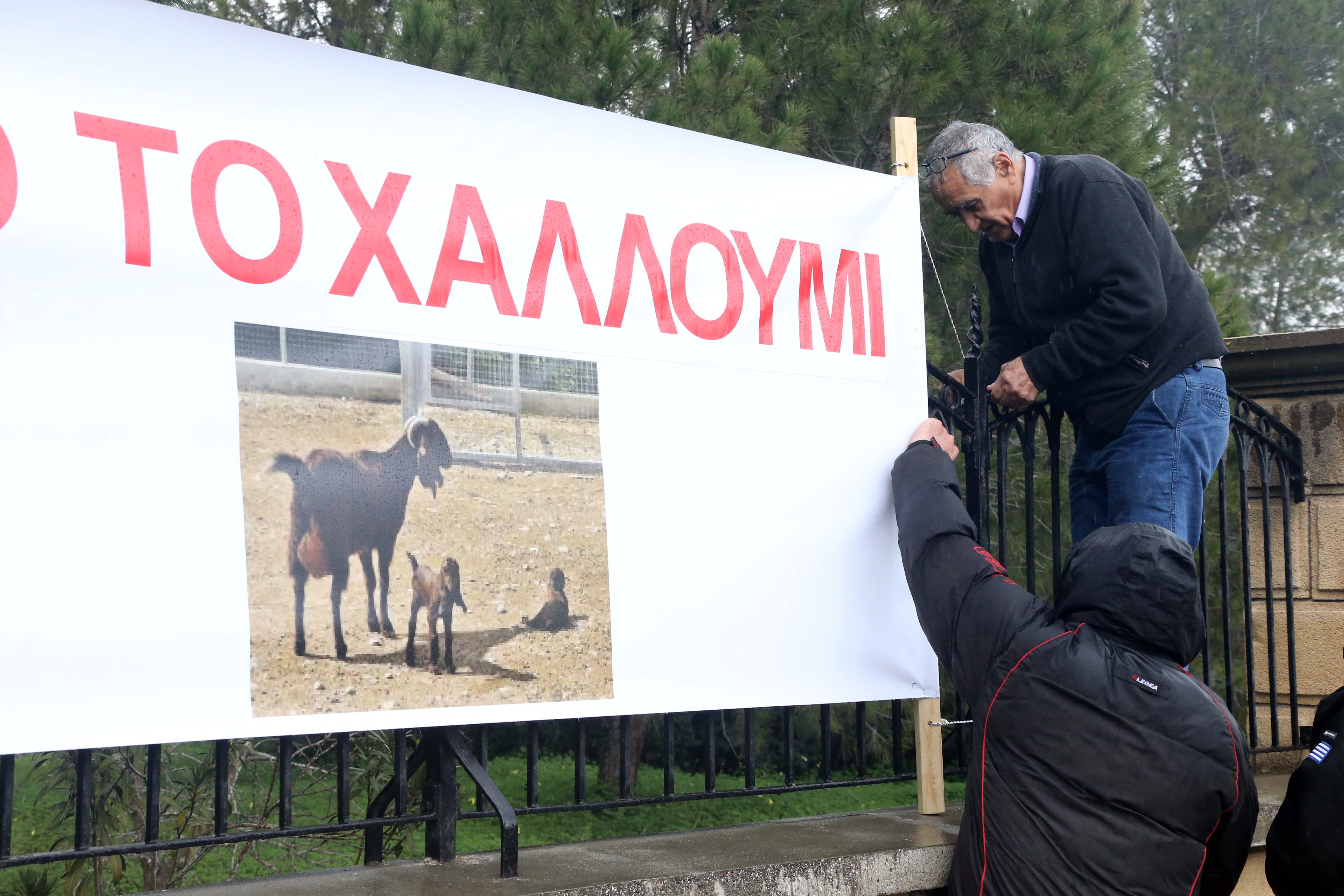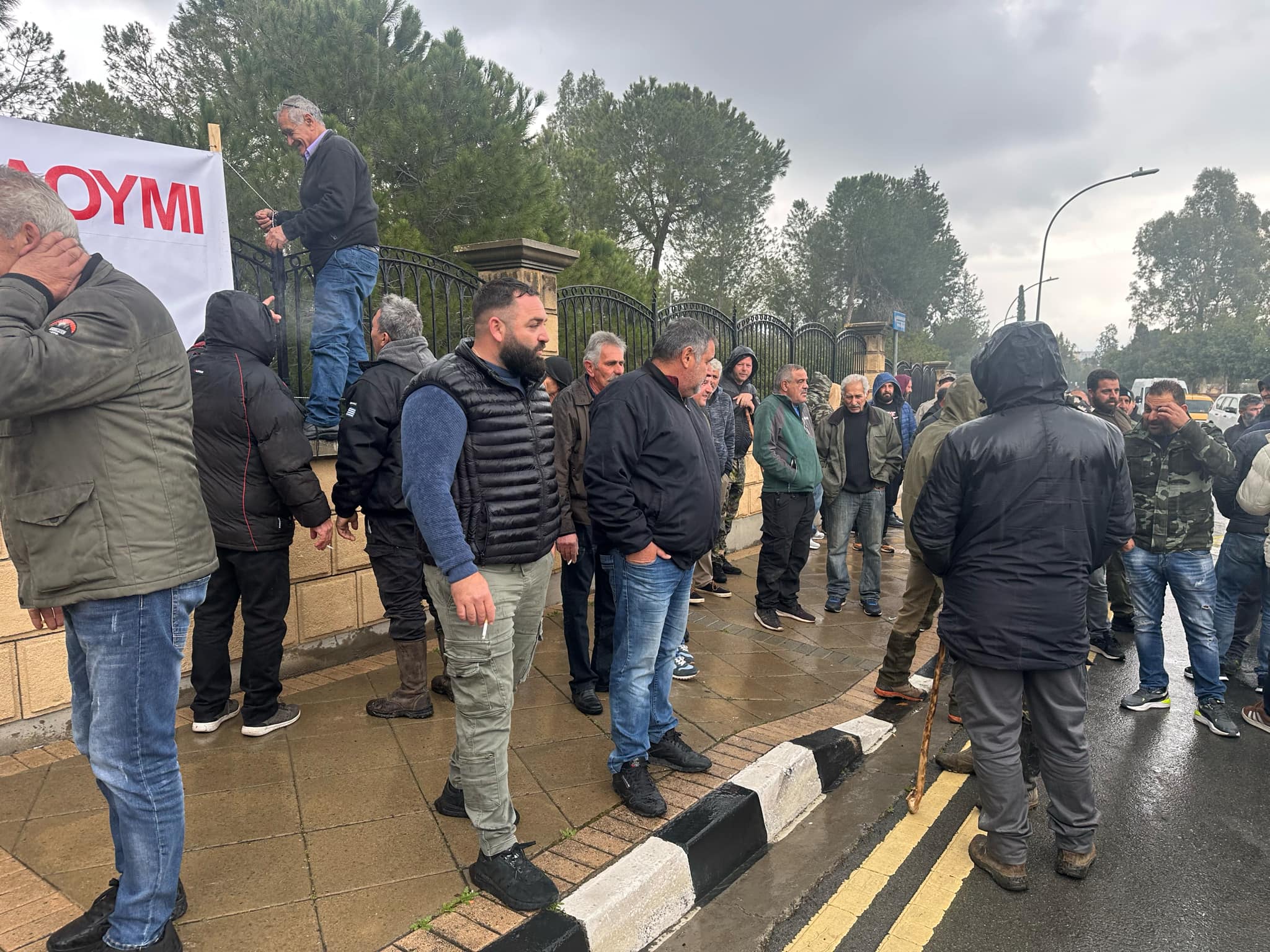Goat and sheep farmers marched on the presidential palace on Tuesday demanding greater security for producers of halloumi and threatening further measures if no action is taken.
The farmers described the protest as “symbolic” with no other goal than safeguarding halloumi’s status as a protected designation of origin (PDO) product.
They called on Agriculture Minister Maria Panayiotou to enforce a decree she proposed, which expires on August 31, which states that until that time the quota of goat and sheep milk in PDO-compliant halloumi is 25 per cent.
They also demanded a new regulation that gradually increases the required percentage of goat and sheep milk in halloumi by 5 per cent annually until 2029.
“This is the only way,” farmers said, “to secure a five-year extension of the transition period, ensuring full compliance with PDO specifications by 2029. It is the only way to protect all those involved in halloumi production, providing a clear roadmap for adaptation without losses. It is also the only way to safeguard Cyprus’ top export product and everything it represents.”
The farmers warned that if their concerns are ignored, their protests will escalate across multiple fronts.
Tuesday’s march began at 10.30am near the former Orphanides supermarket traffic lights in Nicosia leading to the GSP stadium. At 11am, the farmers proceeded towards the presidential palace under police supervision.
President Nikos Christodoulides said the farmers’ right to demonstrate is “fully respected.”
Speaking to journalists, he acknowledged the complexity of the halloumi issue and reiterated his government’s commitment to finding solutions.
“This is a difficult issue. I have personally been involved and continue to be involved, aiming to create incentives that will increase the percentage of goat and sheep milk in halloumi,” he said.





However, he cautioned that results would not be immediate.
“It is not a process that will yield results overnight. That is why we have provided specific incentives, to achieve this increase while considering the broader realities of our country.”
When asked about the effectiveness of market inspections on the actual content of the cheese, Christodoulides assured that checks are being conducted using modern technology to ensure accurate data for decision-making.
The agriculture ministry reiterated its commitment to preserving halloumi PDO as Cyprus’ primary agri-food export while ensuring its continued contribution to the country’s trade balance.
It stressed that a structured strategy is being followed to promote and safeguard PDO halloumi, aiming for the long-term sustainability of all stakeholders.
In recent months, several longstanding demands of professional goat and sheep farmers have been met, as part of efforts to support their role in maintaining PDO standards, the ministry said but it added that goat and sheep milk production levels remain significantly lower than expected.
This lack comes at a time when producers should be intensifying efforts to boost supply and take advantage of targeted incentives introduced by the government, the ministry said.
New measures are being introduced to help farmers adapt and sustain production in the long term.
The ministry acknowledged that these initiatives will take time to deliver results and require collaboration between all involved.
Subsidies will remain focused on professional farmers and those living in rural areas.
It stressed that ongoing issues surrounding halloumi PDO must be addressed through dialogue and transparency.






Click here to change your cookie preferences